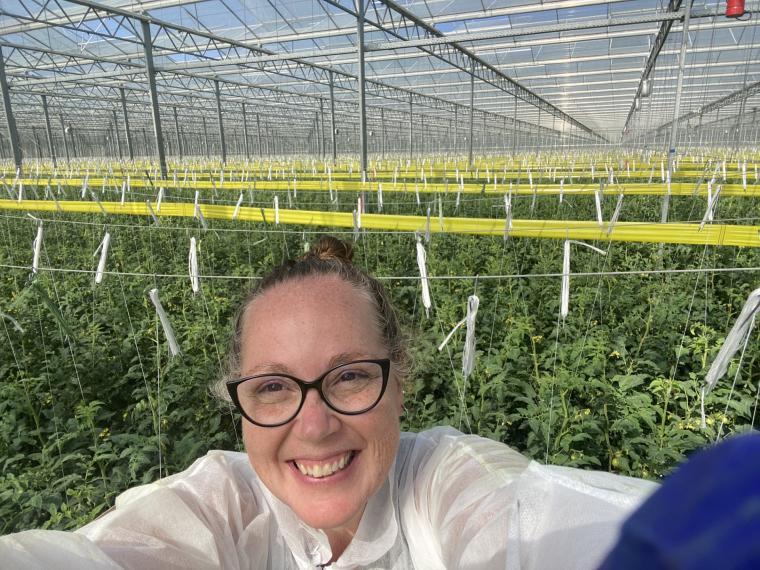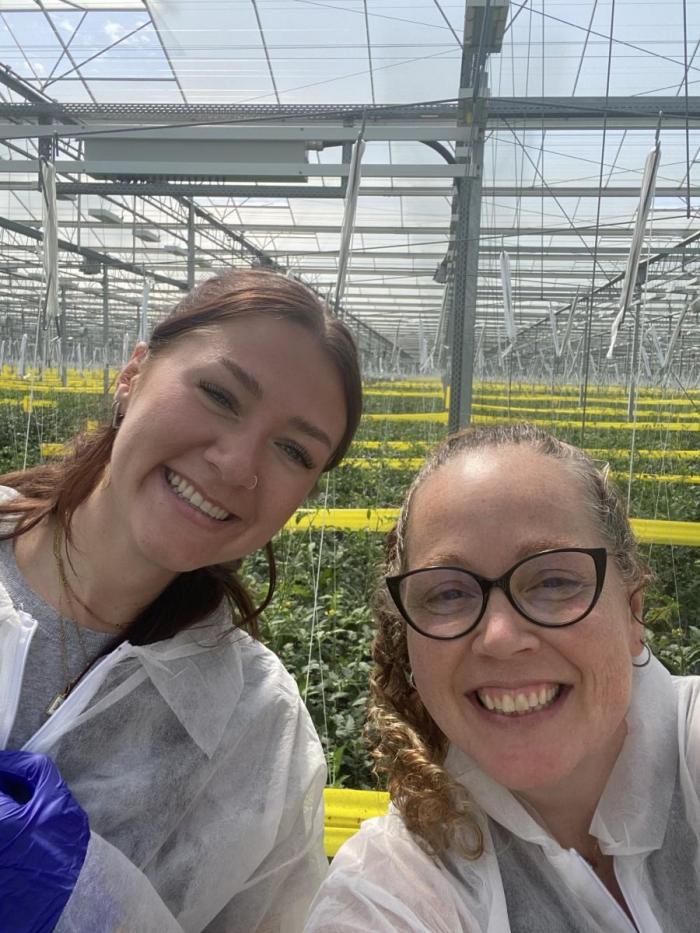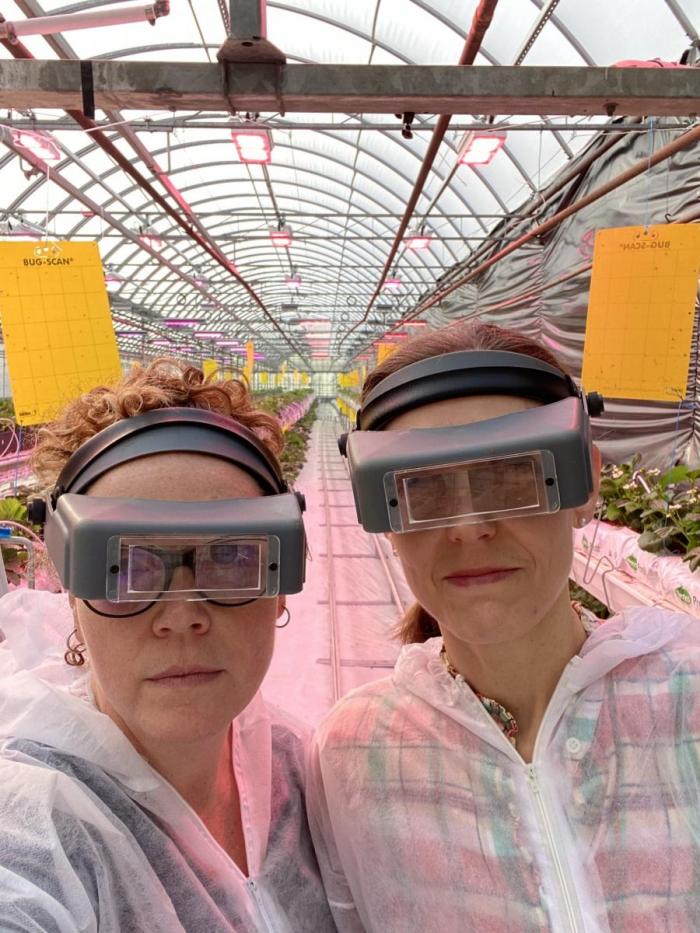Protecting Ontario’s Food: Ridgetown Alumnus Leads Innovation in Greenhouse Pest Management

Having robust and comprehensive integrated pest management (IPM) is essential to protecting crops and supporting a strong, sustainable food system in Ontario. U of G Ridgetown Campus alumnus Cara McCreary is at the forefront of protecting Ontario’s food supply and has dedicated her career to advancing pest control strategies in controlled environments.
As a Greenhouse Vegetable IPM Specialist with the Ontario Ministry of Agriculture, Food and Agribusiness (OMAFA), McCreary’s journey into greenhouse pest management began with a love of plants and a growing fascination with the complex ecosystems within greenhouses. She started her career as a greenhouse scout, where she quickly learned how crucial early pest detection is to maintain healthy crops. Her foundation in horticulture was built at the University of Guelph Ridgetown Campus, where she enrolled in the horticulture diploma program. It was there she discovered an unexpected interest in insects and the science behind pest management.
"In those early days, everything was manual," McCreary recalls. "We used paper maps and coloured highlighters to track pests—much different compared to today’s digital tools."
Advancements in greenhouse technology
McCreary highlights significant advancements in greenhouse pest management."The production side of commercial greenhouses has seen rapid progress, but IPM technology has quietly seen substantial upgrades," says McCreary. "Today, tools like digital scouting apps and AI-driven predictive models are revolutionizing how we manage pests."McCreary emphasizes the crucial role of greenhouse scouts, who help identify potential threats early on." Despite technological advancements, the human eye remains indispensable in recognizing subtle signs of pest infestation," she notes.
Combatting invasive pests in greenhouses
McCreary’s expertise was put to the test during the 2016 pepper weevil outbreak which devastated greenhouse crops and caused approximately $67 million in losses within the greenhouse sector alone.“What made the pepper weevil so difficult to manage was that the pest developed within the pepper, making pesticides limited in efficacy,” says McCreary. “The greenhouse scout teams were critical in quickly identifying these pests so the grower teams can take action.”
Her leadership in combatting the pepper weevil included developing comprehensive strategies to address the threat, leveraging a combination of biocontrol agents and targeted pesticide applications. It was far from a solo effort as success required collaboration across a wide network of partners. McCreary and her team worked closely with researchers at Agriculture and Agri-Food Canada and the University of Guelph, alongside greenhouse growers and grower organizations across Ontario and Canada. The effort extended internationally, engaging stakeholders in key growing regions such as Mexico, where pepper production plays a central role in the supply chain. “It truly took a leadership team across borders to address pepper weevil,” she says. “It was a global challenge that demanded a global response,” she says.

"Tools like AI-powered cameras and drones hold immense promise for enhancing pest surveillance and control," McCreary adds. "These innovations will continue to transform how we detect and manage pests in agriculture."
In her current role at OMAFA, McCreary focuses on addressing existing pest pressures while also anticipating and preparing for emerging threats like the tomato brown rugose fruit virus.“Pest management is about maintaining an ecological balance,” says McCreary. “Integrated Pest Management strategies are built to protect crops in a sustainable way, minimizing environmental impact while supporting long-term productivity.”
The Ridgetown advantage
McCreary speaks passionately about her time at the University of Guelph’s Ridgetown Campus, describing it as a career-defining experience that laid the foundation for her success in horticulture and pest management. From the first day, she was struck by how warm and welcoming the campus community was.“Everyone was just so nice and helpful,” she says. “It really felt like a place where people wanted you to succeed,” she says.
The hands-on, applied learning environment at Ridgetown gave her the practical foundation she needed, while the mentorship she received from faculty members like Chris Gillard and Dr. Jocelyn Smith played a pivotal role in her development.

“Ridgetown played such an important role in my career,” McCreary reflects. “Chris and Jocelyn were incredible mentors who supported me both academically and professionally. I still carry what I learned from them into my work today.”
Building on that foundation, McCreary went on to complete a master’s degree in environmental biology from the University of Guelph, where she deepened her expertise in entomology and pest management, under the guidance of Drs. Rebecca Hallet and Art Schaafsma.
Building on that foundation, McCreary went on to complete a master’s degree in environmental biology from the University of Guelph, where she deepened her expertise in entomology and pest management, under the guidance of Drs.Rebecca Hallet and Art Schaafsma.The advanced training further propelled her career and prepared her for her current role at OMAFA.“Ridgetown gave me real-world experience, connections with experts in the field, and a clear path to where I am today. It’s truly where my journey in pest management began.”